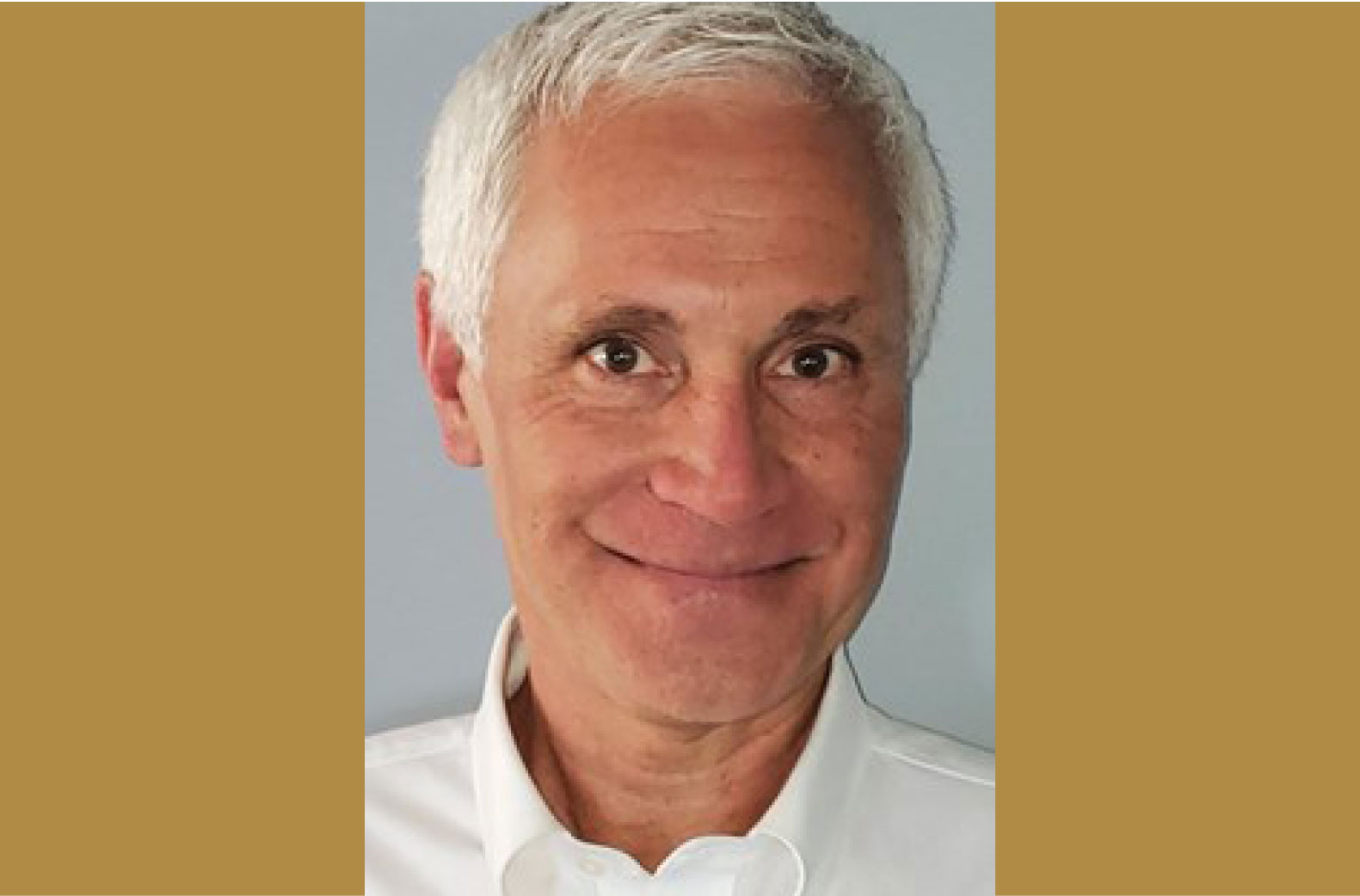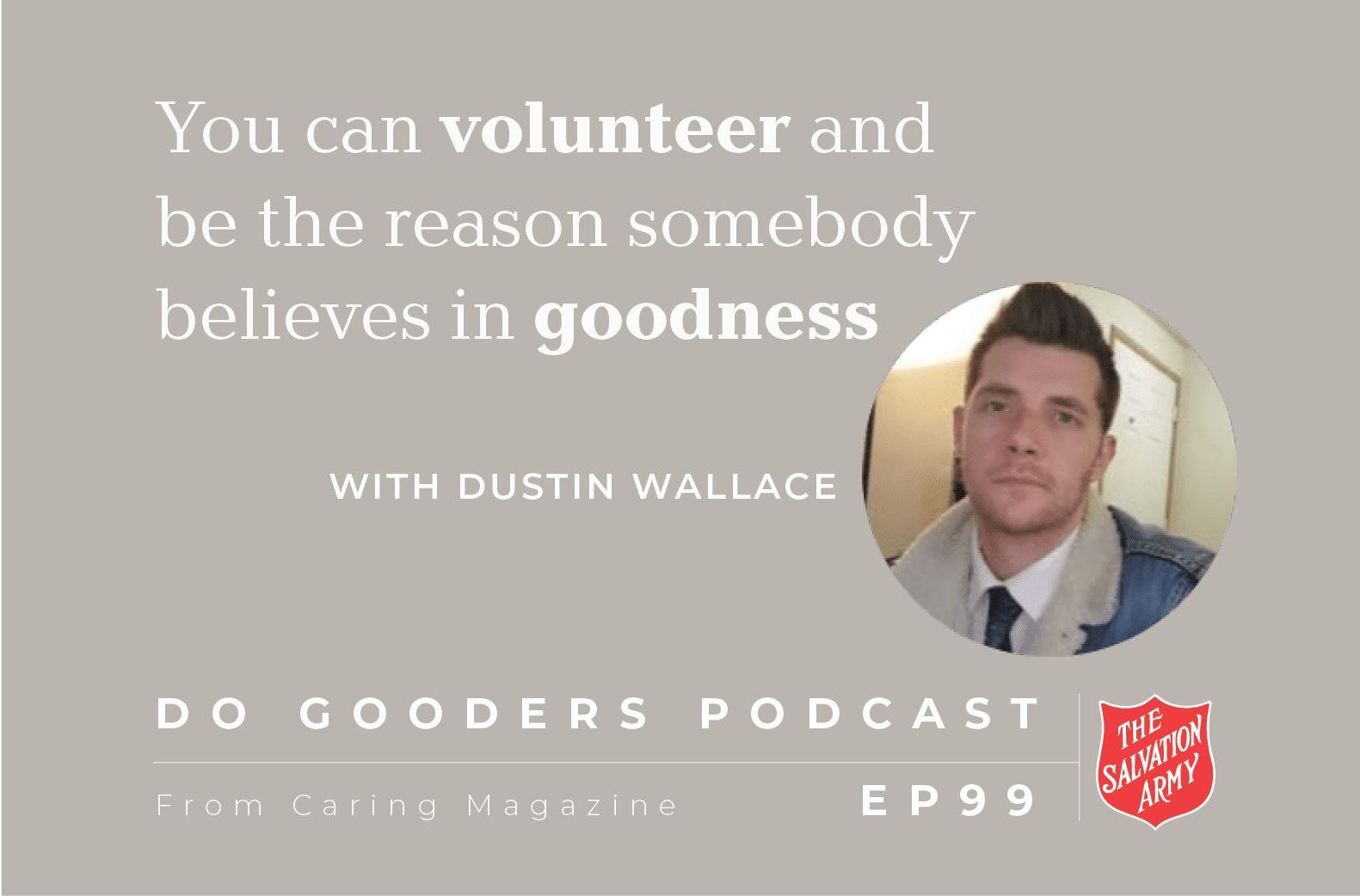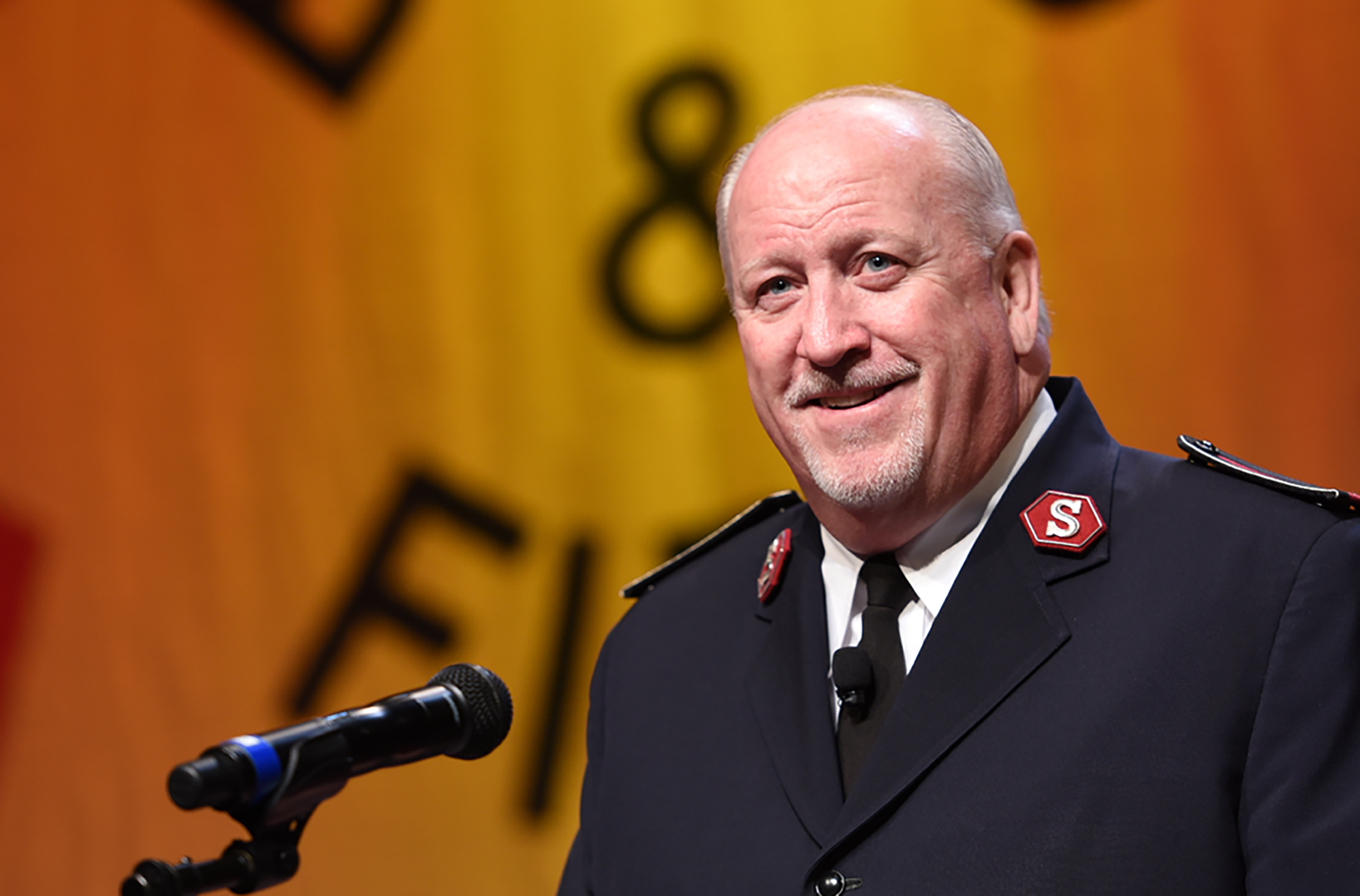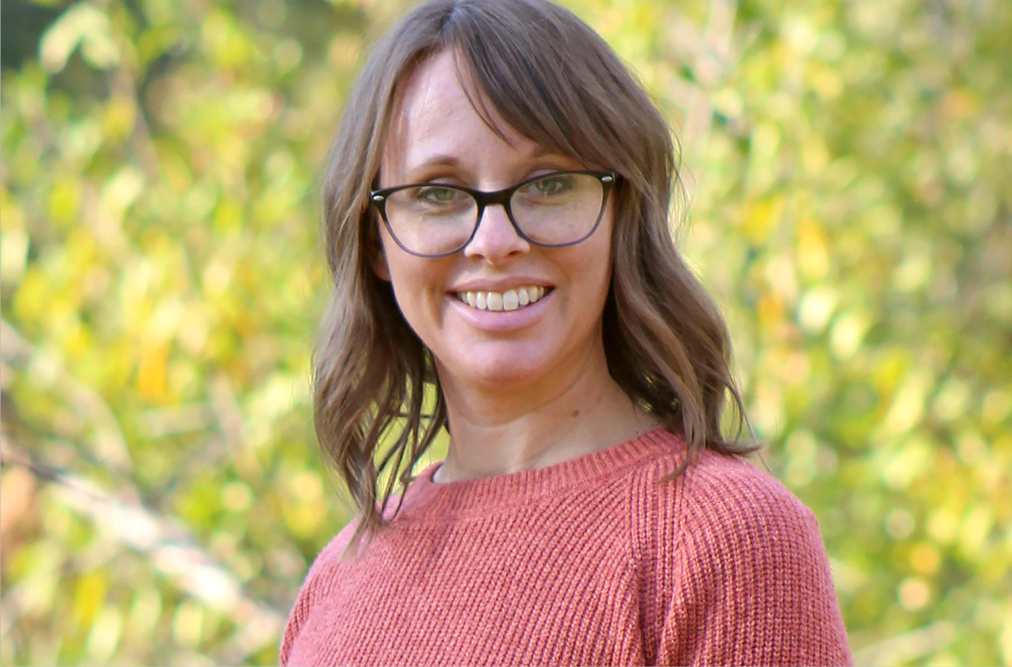Listen to this article
Listen to this article
Loading
Play
Pause
Options
0:00
-:--
1x
Playback Speed- 0.5
- 0.6
- 0.7
- 0.8
- 0.9
- 1
- 1.1
- 1.2
- 1.3
- 1.5
- 2
Audio Language
- English
- French
- German
- Italian
- Spanish
Open text
145: renewal practices for a world shaken by crisis with dr. chris rice. before and after. before 2020, the idea of closed borders, lockdowns, face masks, social distancing, and testing weren’t a thing. after, we’ve experienced the real toll, the disruption, the unknown that the pandemic brought. it was a crisis of a generation, and it changed the world on a global scale. mental exhaustion, economic disparities and escalating divisions now mark our times. but award-winning author, dr. chris rice sees the challenges of our day as a historic opportunity for renewal and fresh growth. in his new book, “from pandemic to renewal: practices for a world shaken by crisis,” he examines eight interrelated crises exposed by the pandemic era and provides pathways for followers of christ to bring transformation and healing to their lives and communities. rice is director of the united nations office of the mennonite central committee, an international relief, development, and peace agency. he served as co-founding director of the duke divinity school center for reconciliation, and is coauthor of reconciling all things and more than equals, which both won christianity today book awards. now, from a burnout society and bipolar world order to our own divided selves, rice helps us understand this emerging world that will reshape our lives for decades to come. in this show, he also shares some of the transformative practices that can move us toward social healing and spiritual renewal. show highlights include:. dr. chris rice’s experience and perspective on the idea of renewal. how he describes this newly changed pandemic era. what the pandemic “x-ray” revealed about us. the great challenges posed by our new world. what it means to bear joy in a world of frantic anxiety. the accelerating condition of burnout and anxiety we find today. what he found in a season of burnout, in “captivity to activity.”. the antidote for anxiety. what we learn from scripture about joy. practices for bearing joy. encouragement for those who see the challenges and want to change things for the better. listen and subscribe to the do gooders podcast now. below is a transcript of the episode, edited for readability. for more information on the people and ideas in the episode, see the links at the bottom of this post. * * *. christin thieme: well, dr. rice, welcome to the do gooders podcast. thank you for joining me today. dr. chris rice: thanks so much for inviting me, christin. i’ve had some very special connections with the salvation army. it’s a joy to be with you. christin thieme: that’s great to hear. i love it. i’m looking forward to this. and why don’t we just jump right in? you have a great deal of experiences across many cultures, contexts, churches. a few that i have come across that you were born in the us but grew up in south korea, lived for 17 years in inner city, jackson, mississippi, serving in a multiracial church and community development organization. served for 10 years as co-founding director of the duke divinity school center for reconciliation. five years based in south korea as co-representative with your wife, donna, for northeast asia with the mennonite central committee and leading teams there into north korea. and finally as director of the mennonite central committee’s un office. that is quite the rundown of experiences. so, a little question to start here. what perspective has all of that experience given to you about this idea of renewal? dr. chris rice: well, each one of those places, experiences as you mentioned, christin, was an interruption of my life. each was a surprise. in some cases i resisted them, but each of them was in a way difficult ground, which became a ground of renewal in my life. and i don’t know who i would be without those different places in terms of my understanding of what it means to be a disciple of christ and what renewal is about. christin thieme: and now you’ve written a book on the topic. your book is titled from pandemic to renewal: practices for a world shaken by crisis. you wrote in the introduction, the pandemic permanently changed the world and our everyday lives and will change the course of history. how do you describe this newly changed pandemic era that we now find ourselves in? dr. chris rice: well, i think that the pandemic was the crisis of a generation. it was a generational crisis, and in the midst of that crisis, it became an x-ray revealing things and also an accelerant. it also accelerated realities. it was an x-ray to the anxiety within our society, the high levels of anxiety, the mental health breakdown among so many people, mental health crisis among teenagers. it revealed rising disparity between the haves and the have nots. it revealed surging polarization and then also accelerated many of these things. so, when you take the covid, we had three things happen, each of which would’ve been a generational crisis. one, covid and 1.1 million deaths from covid in the us alone, 7 million across the world. the murder of george floyd and the racial reckoning that that has led to. and then thirdly, the 2020 election and the january 6th mob attack on the us capitol. so, nearly 40% of pastors said they almost quit during the pandemic. so, i think all this amounts to a really challenging new time that has opened up, but that does offer an opportunity for renewal. christin thieme: you talk a lot about how the book is not about the pandemic and the lockdown and all of that, the loss that happened, but about seeing the new challenges that face us now and the opportunities that we have for, like you said, growth and renewal. can you share a little bit more about what you mean by that? dr. chris rice: yeah. well, i think throughout history, social crisis has been a ground for birthing renewals in the church. monasticism, hospitals, the protestant reformation, franciscans, global mission, all grew out of crises within the church. so, what i mean by renewal is that renewal is where a crisis, where a difficult place in our lives, in our communities, our world, becomes an opportunity to be more faithful to the way of christ. and that’s the opportunity that i really believe is before us and that i seek to lay out the challenges and the transformational practices that can make that renewal happen in our lives, communities and churches. christin thieme: can you tell us a little bit more about those challenges? you go into great detail in your book laying out eight different challenges posed by this new world that we are in, but maybe you could give us a little bit of a primer here. dr. chris rice: yeah. well, it was challenging trying to figure out number one, how to begin the book, because-. christin thieme: where to start? dr. chris rice: yeah, what i just named is actually a cause of lament. there’s so much to lament. but i felt that thinking theologically, that that was not the place to begin. so, i do begin with the challenge of frantic anxiety that has been really opened up, revealed by the pandemic this post 2020 time. but the transformative practice in response to anxiety is not activism, it’s bearing joy. how do we become joy bearing people who are grounded not in what we do, but in being beloved? so, that’s how i begin the book. and then i move to the rising disparity that this time has revealed. and the transformative practice is centering the vulnerable. and i use the good samaritan story in that chapter to show the actions of the samaritan, this story that jesus told, and then how that speaks into practices for our time. and then there’s the polarization that was revealed by the pandemic, political polarization, racial polarization and polarization globally. i have a front row seat at the united nations and see the battles between the us and china and how that polarization is affecting the whole world in very challenging ways, and the call to be peacemakers. that i think we would all agree, i think, that the pandemic revealed a lot of political mediocrity, both left and right, and the challenge of how we then redeem power, because political power matters. it matters for indispensable good, but it also represents unparalleled danger. and so how do we redeem power? so, those are some of the challenges and some of the transformed practices that i lay out in the book. christin thieme: no small challenge ahead of us, of course. but i’d like to dig in a little bit to the first one that you mentioned, talking about joy in this world of frantic anxiety, as you call it. of course anxiety existed before the pandemic. you even quote a book that released a few years back called can’t even: how millennials became the burnout generation, in which the author, anne helen petersen, writes increasingly and increasingly among millennials, burnout isn’t just a temporary affliction, it’s our contemporary condition. what do you think is accelerating this condition of burnout and anxiety post pandemic? dr. chris rice: well, one of the things that’s accelerating it is social media. so, you already have all the divides over covid, the death and all the divides that revealed we’ve got the racial reckoning and deep differences over race, political. but then you add to that what also accelerated during the pandemic was use of social media and algorithms that are really algorithms that are designed for addiction and that are not designed, but that also foment division. so, you’ve got addiction, division, and i was just listening to a story yesterday about how teenagers today, one third of teenagers are constantly on social media, but there’s also a mental health crisis today among teenagers. and the relationship between those two, that you would think that social media would make you less lonely, but it actually is making people more lonely and more anxious. so, i think all that together really has accelerated in what i call this pandemic era. christin thieme: and what is that frantic anxiety? dr. chris rice: well, what i talk about in the book is, it’s not pessimism. it’s not grounded in pessimism. it’s actually grounded in an excess of positivity. it’s grounded in this illusion that the more active we become, the freer we are. but a society that says nothing is impossible is a society where people can become to feel that life is really difficult and trying harder, doing more, but that is not sustainable. christin thieme: and i think a lot of people can relate to that, but you see these needs and so you try to do more to meet them. you share a story about your own experience of that when you were working in mississippi and said that you found yourself in captivity to activity. can you share a little bit more about what you come to find to be a form of violence to ourselves? dr. chris rice: yeah. well, so i was part of a multiracial church and community development organization in mississippi. and a group of us actually lived in an intentional community together. and i would say that our motto was the gospel is one of trying harder and doing more. and we did that for 12 years and then we hit a crisis in our community. and burnout, what burnout does is burnout breaks relationships. and in the midst of that crisis, trying harder and doing more, a mentor came to us and asked us a question. the question he asked was, “what does the bible talk about more, loving god or loving neighbor?”. now, i thought that was a trick question because the bible talks a lot about both of those things. but what the mentor said is actually what the bible talks about a lot more is stories about god’s love for us. and if we don’t get that story into our bones, we become very dangerous activists. and so that led to a breakthrough in our life together and seeking to move from a culture of demands to a culture of grace. and learning that the antidote for our burnout, the antidote for our anxiety was not activism, it was joy, it was being grounded in getting god’s love into our bones and how we developed practices of doing that for one another. christin thieme: joy. so, can you give us a little bit of an explanation on what is biblical joy and what do we learn from scripture specifically about joy? dr. chris rice: well, when you look at the life of jesus, we could say that jesus’ life is bookended with lament, with suffering. jesus is born and herod orders the killing of all the baby boys in order to kill this threat to his kingdom. and then the story ends in a way with jesus on the cross. so, the suffering is there, the grief is there, the pain of the world is right there. that’s a true story, that’s a true story for us. but what comes before that lament is the birth of christ. and that birth is a time of immense joy. the shepherds, the angels, the joy of the incarnation. and then of course the story ends with resurrection, with the joy of the disciples. and jesus seeking to instill joy into his disciples. as the hebrew says, “for the joy set before him, jesus endured the cross.” so, that joy, not the same as happiness, it’s a state of heart and mind that takes us through even difficult times. christin thieme: what are some practices then for bearing joy, for being rooted in joy despite what might be going on? dr. chris rice: well, one is what i call not to rhythms, rhythms of not to. rather than to do, not to rhythms. sabbath. sabbath keeping is a not to rhythm, a rhythm of being still. i consider myself a card carrying member of aa, not alcoholics anonymous, but activists anonymous. i’m kind of a recovering activist. and i had a close friend of mine in mississippi who died very suddenly and it was really a painful before and after. and after he died, i went away to a retreat center and i realized that i had been really active intensely for 17 years in ministry, and i had never taken a time away for retreat to be still. 17 years. but since then, in the 25 years since then, i take regular times of retreat each year. and i have a friend who teaches at duke university, teaches political science. he likes to joke that chris rice retreats more than the french army. but i think that we have to find those practices. i also talk in the book about sparking joy. what is it that sparks joy for you? for me it’s nature, being in nature, it’s bird watching. and we also need companions in our lives, our joy growing companions, who will put god’s love into our bones. so, those are some of the practices that i think can really ground us in joy. christin thieme: and you go much deeper into that in the book, along with the other challenges and the transformative practices that can help us through them. to those who see these challenges and who maybe have an action list of things to change for the better. what would be your encouragement to them? what would you say to them? dr. chris rice: can you say that again? christin thieme: sure, absolutely. i’m just going to back up a little and say that whole little section again. basically kind of a closing encouragement. dr. chris rice: okay. christin thieme: so, you go-. dr. chris rice: can you ask me… no, go ahead. christin thieme: sorry about that. so, you go much deeper into this challenge of anxiety and this transformative practice, and along with the other challenges that you lay out throughout the book. as we close here, i’m wondering if you could give some encouragement or what you would have to say to those who see these challenges, they understand this crisis, and maybe they have an action list of things that they want to change for the better. i think so many members of our audience could relate to that. what would you say to them? dr. chris rice: well, i think the thing i would say is that amidst all these incredible challenges of our time, from political, to racial, to going across the world to us and china, to environmental decay, technological disruption, that bottom line, it’s only worth it if we’re grounded in friendship intimacy with christ. that’s what i would say. christ’s friend, jesus’ friend. and there’s the christian tradition that talks about jesus is prophet, priest, and king. we need to add to that christ as friend and getting that belovedness. before jesus begins his ministry, there’s the words from heaven, “this is my beloved son with whom i’m well pleased.”. so, before we do, we’re sent. before we’re sent, we’re still. before we’re still, we’re beloved. so, whatever many things we need to do, but being grounded in our belovedness and how we can do that for others and others do that for us. that’s what i would say, and that’s what’s helped me, keep me going. christin thieme: i love it. well, dr. rice, thank you so much for sharing. thank you for giving us some insight into this new book and for giving us this resource again titled from pandemic to renewal: practices for a world shaken by crisis. and dr. rice has shared an excerpt from the book that we will link to in our show notes as well, that you can take a look at and find a link to pick up that book. thank you so much, dr. rice, and, yeah, just thank you. dr. chris rice: thanks so much for having me, christin. additional resources:. for more on finding joy in a changing society, read “from pandemic to renewal: practices for a world shaken by crisis” by chris rice. how do you want to experience your life? what do you want your life to reflect? get the joy-filled toolkit now and make a plan for joy with a printable 12-week joy planner and mini-workshop podcast to help you create a season of intention. get on the list for good words from the good word and get a boost of inspiration in 1 minute a day with a daily affirmation from scripture list sent straight to your inbox. it’s an email to help you start your day with goodness. listen and subscribe to the do gooders podcast now.
Open context player
Close context player
Plays:-Audio plays count
145: renewal practices for a world shaken by crisis with dr. chris rice. before and after. before 2020, the idea of closed borders, lockdowns, face masks, social distancing, and testing weren’t a thing. after, we’ve experienced the real toll, the disruption, the unknown that the pandemic brought. it was a crisis of a generation, and it changed the world on a global scale. mental exhaustion, economic disparities and escalating divisions now mark our times. but award-winning author, dr. chris rice sees the challenges of our day as a historic opportunity for renewal and fresh growth. in his new book, “from pandemic to renewal: practices for a world shaken by crisis,” he examines eight interrelated crises exposed by the pandemic era and provides pathways for followers of christ to bring transformation and healing to their lives and communities. rice is director of the united nations office of the mennonite central committee, an international relief, development, and peace agency. he served as co-founding director of the duke divinity school center for reconciliation, and is coauthor of reconciling all things and more than equals, which both won christianity today book awards. now, from a burnout society and bipolar world order to our own divided selves, rice helps us understand this emerging world that will reshape our lives for decades to come. in this show, he also shares some of the transformative practices that can move us toward social healing and spiritual renewal. show highlights include:. dr. chris rice’s experience and perspective on the idea of renewal. how he describes this newly changed pandemic era. what the pandemic “x-ray” revealed about us. the great challenges posed by our new world. what it means to bear joy in a world of frantic anxiety. the accelerating condition of burnout and anxiety we find today. what he found in a season of burnout, in “captivity to activity.”. the antidote for anxiety. what we learn from scripture about joy. practices for bearing joy. encouragement for those who see the challenges and want to change things for the better. listen and subscribe to the do gooders podcast now. below is a transcript of the episode, edited for readability. for more information on the people and ideas in the episode, see the links at the bottom of this post. * * *. christin thieme: well, dr. rice, welcome to the do gooders podcast. thank you for joining me today. dr. chris rice: thanks so much for inviting me, christin. i’ve had some very special connections with the salvation army. it’s a joy to be with you. christin thieme: that’s great to hear. i love it. i’m looking forward to this. and why don’t we just jump right in? you have a great deal of experiences across many cultures, contexts, churches. a few that i have come across that you were born in the us but grew up in south korea, lived for 17 years in inner city, jackson, mississippi, serving in a multiracial church and community development organization. served for 10 years as co-founding director of the duke divinity school center for reconciliation. five years based in south korea as co-representative with your wife, donna, for northeast asia with the mennonite central committee and leading teams there into north korea. and finally as director of the mennonite central committee’s un office. that is quite the rundown of experiences. so, a little question to start here. what perspective has all of that experience given to you about this idea of renewal? dr. chris rice: well, each one of those places, experiences as you mentioned, christin, was an interruption of my life. each was a surprise. in some cases i resisted them, but each of them was in a way difficult ground, which became a ground of renewal in my life. and i don’t know who i would be without those different places in terms of my understanding of what it means to be a disciple of christ and what renewal is about. christin thieme: and now you’ve written a book on the topic. your book is titled from pandemic to renewal: practices for a world shaken by crisis. you wrote in the introduction, the pandemic permanently changed the world and our everyday lives and will change the course of history. how do you describe this newly changed pandemic era that we now find ourselves in? dr. chris rice: well, i think that the pandemic was the crisis of a generation. it was a generational crisis, and in the midst of that crisis, it became an x-ray revealing things and also an accelerant. it also accelerated realities. it was an x-ray to the anxiety within our society, the high levels of anxiety, the mental health breakdown among so many people, mental health crisis among teenagers. it revealed rising disparity between the haves and the have nots. it revealed surging polarization and then also accelerated many of these things. so, when you take the covid, we had three things happen, each of which would’ve been a generational crisis. one, covid and 1.1 million deaths from covid in the us alone, 7 million across the world. the murder of george floyd and the racial reckoning that that has led to. and then thirdly, the 2020 election and the january 6th mob attack on the us capitol. so, nearly 40% of pastors said they almost quit during the pandemic. so, i think all this amounts to a really challenging new time that has opened up, but that does offer an opportunity for renewal. christin thieme: you talk a lot about how the book is not about the pandemic and the lockdown and all of that, the loss that happened, but about seeing the new challenges that face us now and the opportunities that we have for, like you said, growth and renewal. can you share a little bit more about what you mean by that? dr. chris rice: yeah. well, i think throughout history, social crisis has been a ground for birthing renewals in the church. monasticism, hospitals, the protestant reformation, franciscans, global mission, all grew out of crises within the church. so, what i mean by renewal is that renewal is where a crisis, where a difficult place in our lives, in our communities, our world, becomes an opportunity to be more faithful to the way of christ. and that’s the opportunity that i really believe is before us and that i seek to lay out the challenges and the transformational practices that can make that renewal happen in our lives, communities and churches. christin thieme: can you tell us a little bit more about those challenges? you go into great detail in your book laying out eight different challenges posed by this new world that we are in, but maybe you could give us a little bit of a primer here. dr. chris rice: yeah. well, it was challenging trying to figure out number one, how to begin the book, because-. christin thieme: where to start? dr. chris rice: yeah, what i just named is actually a cause of lament. there’s so much to lament. but i felt that thinking theologically, that that was not the place to begin. so, i do begin with the challenge of frantic anxiety that has been really opened up, revealed by the pandemic this post 2020 time. but the transformative practice in response to anxiety is not activism, it’s bearing joy. how do we become joy bearing people who are grounded not in what we do, but in being beloved? so, that’s how i begin the book. and then i move to the rising disparity that this time has revealed. and the transformative practice is centering the vulnerable. and i use the good samaritan story in that chapter to show the actions of the samaritan, this story that jesus told, and then how that speaks into practices for our time. and then there’s the polarization that was revealed by the pandemic, political polarization, racial polarization and polarization globally. i have a front row seat at the united nations and see the battles between the us and china and how that polarization is affecting the whole world in very challenging ways, and the call to be peacemakers. that i think we would all agree, i think, that the pandemic revealed a lot of political mediocrity, both left and right, and the challenge of how we then redeem power, because political power matters. it matters for indispensable good, but it also represents unparalleled danger. and so how do we redeem power? so, those are some of the challenges and some of the transformed practices that i lay out in the book. christin thieme: no small challenge ahead of us, of course. but i’d like to dig in a little bit to the first one that you mentioned, talking about joy in this world of frantic anxiety, as you call it. of course anxiety existed before the pandemic. you even quote a book that released a few years back called can’t even: how millennials became the burnout generation, in which the author, anne helen petersen, writes increasingly and increasingly among millennials, burnout isn’t just a temporary affliction, it’s our contemporary condition. what do you think is accelerating this condition of burnout and anxiety post pandemic? dr. chris rice: well, one of the things that’s accelerating it is social media. so, you already have all the divides over covid, the death and all the divides that revealed we’ve got the racial reckoning and deep differences over race, political. but then you add to that what also accelerated during the pandemic was use of social media and algorithms that are really algorithms that are designed for addiction and that are not designed, but that also foment division. so, you’ve got addiction, division, and i was just listening to a story yesterday about how teenagers today, one third of teenagers are constantly on social media, but there’s also a mental health crisis today among teenagers. and the relationship between those two, that you would think that social media would make you less lonely, but it actually is making people more lonely and more anxious. so, i think all that together really has accelerated in what i call this pandemic era. christin thieme: and what is that frantic anxiety? dr. chris rice: well, what i talk about in the book is, it’s not pessimism. it’s not grounded in pessimism. it’s actually grounded in an excess of positivity. it’s grounded in this illusion that the more active we become, the freer we are. but a society that says nothing is impossible is a society where people can become to feel that life is really difficult and trying harder, doing more, but that is not sustainable. christin thieme: and i think a lot of people can relate to that, but you see these needs and so you try to do more to meet them. you share a story about your own experience of that when you were working in mississippi and said that you found yourself in captivity to activity. can you share a little bit more about what you come to find to be a form of violence to ourselves? dr. chris rice: yeah. well, so i was part of a multiracial church and community development organization in mississippi. and a group of us actually lived in an intentional community together. and i would say that our motto was the gospel is one of trying harder and doing more. and we did that for 12 years and then we hit a crisis in our community. and burnout, what burnout does is burnout breaks relationships. and in the midst of that crisis, trying harder and doing more, a mentor came to us and asked us a question. the question he asked was, “what does the bible talk about more, loving god or loving neighbor?”. now, i thought that was a trick question because the bible talks a lot about both of those things. but what the mentor said is actually what the bible talks about a lot more is stories about god’s love for us. and if we don’t get that story into our bones, we become very dangerous activists. and so that led to a breakthrough in our life together and seeking to move from a culture of demands to a culture of grace. and learning that the antidote for our burnout, the antidote for our anxiety was not activism, it was joy, it was being grounded in getting god’s love into our bones and how we developed practices of doing that for one another. christin thieme: joy. so, can you give us a little bit of an explanation on what is biblical joy and what do we learn from scripture specifically about joy? dr. chris rice: well, when you look at the life of jesus, we could say that jesus’ life is bookended with lament, with suffering. jesus is born and herod orders the killing of all the baby boys in order to kill this threat to his kingdom. and then the story ends in a way with jesus on the cross. so, the suffering is there, the grief is there, the pain of the world is right there. that’s a true story, that’s a true story for us. but what comes before that lament is the birth of christ. and that birth is a time of immense joy. the shepherds, the angels, the joy of the incarnation. and then of course the story ends with resurrection, with the joy of the disciples. and jesus seeking to instill joy into his disciples. as the hebrew says, “for the joy set before him, jesus endured the cross.” so, that joy, not the same as happiness, it’s a state of heart and mind that takes us through even difficult times. christin thieme: what are some practices then for bearing joy, for being rooted in joy despite what might be going on? dr. chris rice: well, one is what i call not to rhythms, rhythms of not to. rather than to do, not to rhythms. sabbath. sabbath keeping is a not to rhythm, a rhythm of being still. i consider myself a card carrying member of aa, not alcoholics anonymous, but activists anonymous. i’m kind of a recovering activist. and i had a close friend of mine in mississippi who died very suddenly and it was really a painful before and after. and after he died, i went away to a retreat center and i realized that i had been really active intensely for 17 years in ministry, and i had never taken a time away for retreat to be still. 17 years. but since then, in the 25 years since then, i take regular times of retreat each year. and i have a friend who teaches at duke university, teaches political science. he likes to joke that chris rice retreats more than the french army. but i think that we have to find those practices. i also talk in the book about sparking joy. what is it that sparks joy for you? for me it’s nature, being in nature, it’s bird watching. and we also need companions in our lives, our joy growing companions, who will put god’s love into our bones. so, those are some of the practices that i think can really ground us in joy. christin thieme: and you go much deeper into that in the book, along with the other challenges and the transformative practices that can help us through them. to those who see these challenges and who maybe have an action list of things to change for the better. what would be your encouragement to them? what would you say to them? dr. chris rice: can you say that again? christin thieme: sure, absolutely. i’m just going to back up a little and say that whole little section again. basically kind of a closing encouragement. dr. chris rice: okay. christin thieme: so, you go-. dr. chris rice: can you ask me… no, go ahead. christin thieme: sorry about that. so, you go much deeper into this challenge of anxiety and this transformative practice, and along with the other challenges that you lay out throughout the book. as we close here, i’m wondering if you could give some encouragement or what you would have to say to those who see these challenges, they understand this crisis, and maybe they have an action list of things that they want to change for the better. i think so many members of our audience could relate to that. what would you say to them? dr. chris rice: well, i think the thing i would say is that amidst all these incredible challenges of our time, from political, to racial, to going across the world to us and china, to environmental decay, technological disruption, that bottom line, it’s only worth it if we’re grounded in friendship intimacy with christ. that’s what i would say. christ’s friend, jesus’ friend. and there’s the christian tradition that talks about jesus is prophet, priest, and king. we need to add to that christ as friend and getting that belovedness. before jesus begins his ministry, there’s the words from heaven, “this is my beloved son with whom i’m well pleased.”. so, before we do, we’re sent. before we’re sent, we’re still. before we’re still, we’re beloved. so, whatever many things we need to do, but being grounded in our belovedness and how we can do that for others and others do that for us. that’s what i would say, and that’s what’s helped me, keep me going. christin thieme: i love it. well, dr. rice, thank you so much for sharing. thank you for giving us some insight into this new book and for giving us this resource again titled from pandemic to renewal: practices for a world shaken by crisis. and dr. rice has shared an excerpt from the book that we will link to in our show notes as well, that you can take a look at and find a link to pick up that book. thank you so much, dr. rice, and, yeah, just thank you. dr. chris rice: thanks so much for having me, christin. additional resources:. for more on finding joy in a changing society, read “from pandemic to renewal: practices for a world shaken by crisis” by chris rice. how do you want to experience your life? what do you want your life to reflect? get the joy-filled toolkit now and make a plan for joy with a printable 12-week joy planner and mini-workshop podcast to help you create a season of intention. get on the list for good words from the good word and get a boost of inspiration in 1 minute a day with a daily affirmation from scripture list sent straight to your inbox. it’s an email to help you start your day with goodness. listen and subscribe to the do gooders podcast now.
Listen to this article

















